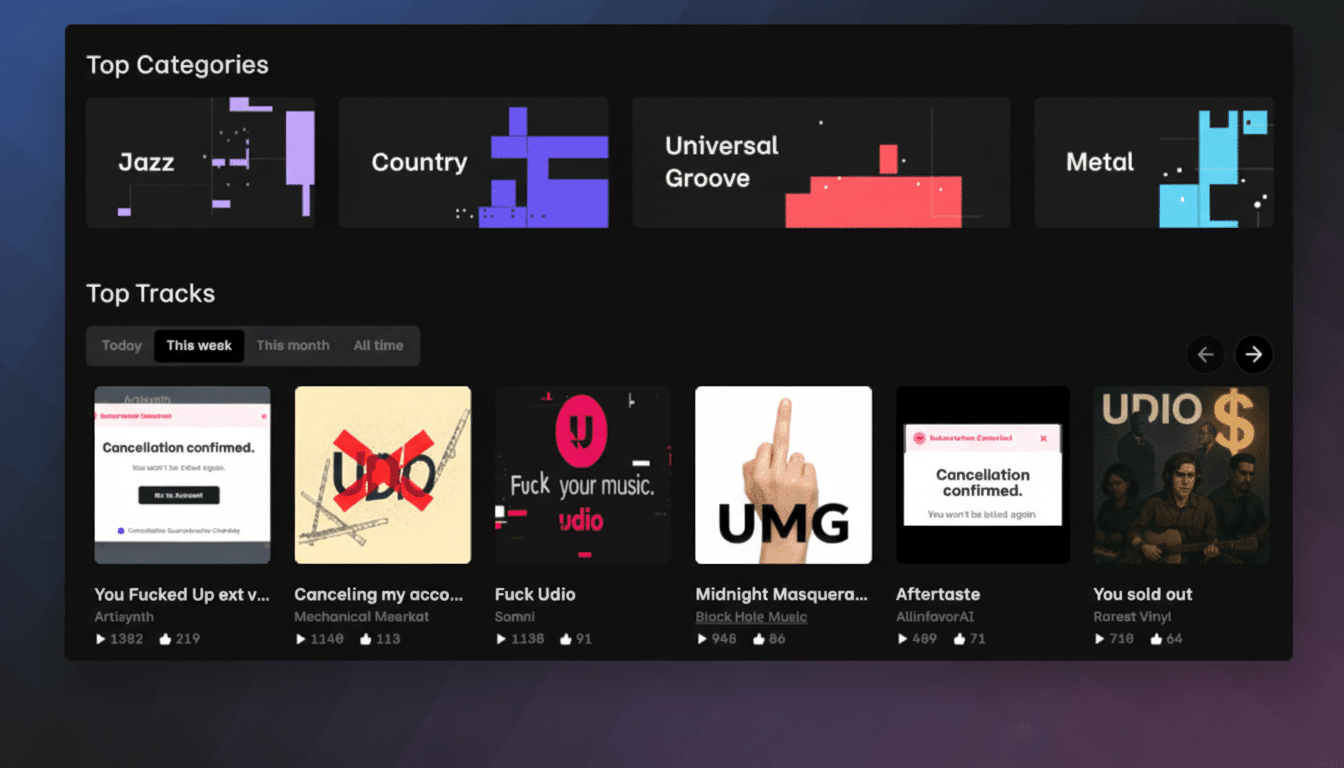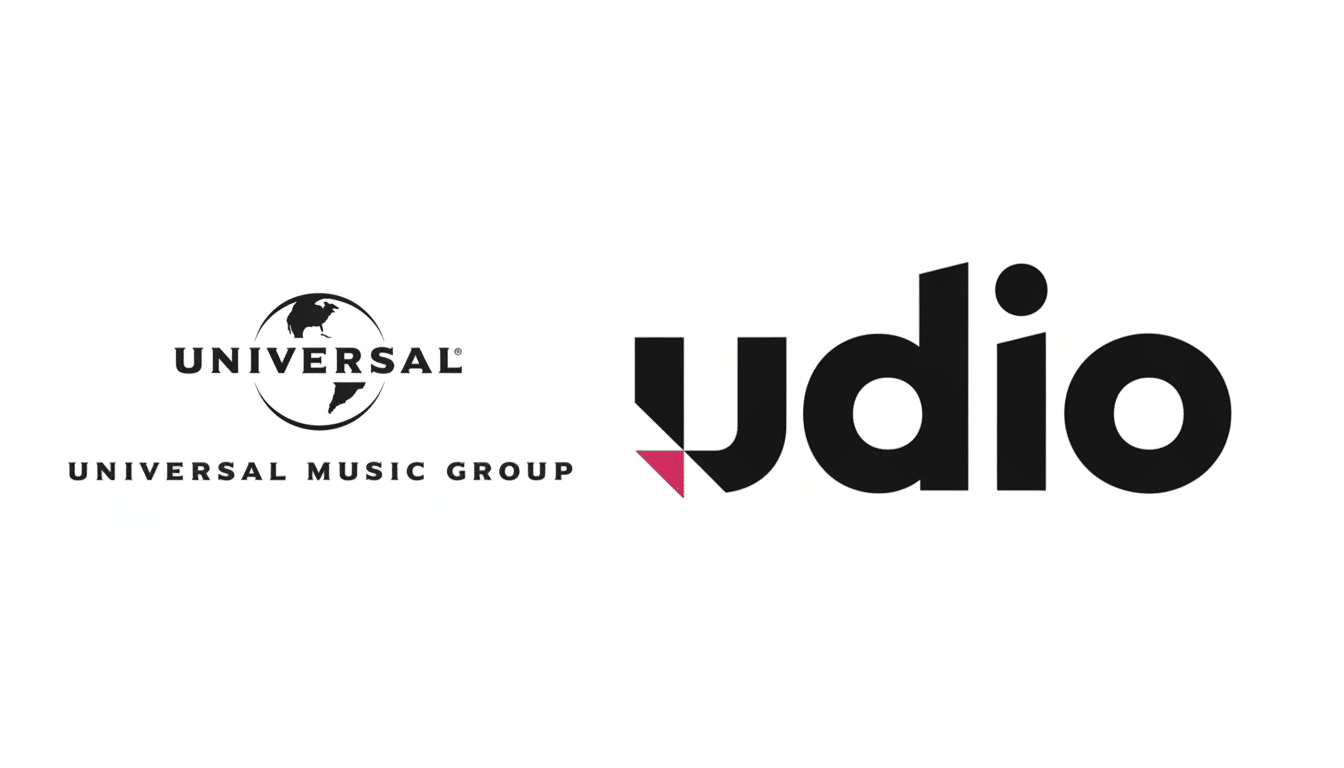Udio, one of the most buzzed-about AI music generators, has shut down downloads for user-generated tracks — an overarching change that overhauls how people can make use of the service. The platform still allows song creation, but, as first reported by The Verge, creators can no longer export a file to bring into a DAW, upload to distributors, or share off-platform without technical knowledge.
What Changed and Why It Matters for Udio Users
Udio had once let users export scraped audio files of their AI-produced music. That window of opportunity has recently been slammed shut after a short grace period, with the company limiting access to raw downloads and effectively containing creations within Udio’s own domain. The change severely affects real-world workflows — no WAVs or stems for mixing and mastering, no simple MP3s for uploads, and a diminished road to commercial use.
- What Changed and Why It Matters for Udio Users
- Universal Deal Reshapes Access to Udio’s AI Music Platform
- The Creator Impact on Workflows, Distribution, and Revenue
- Signals for AI Music: Exports, Guardrails, and Control
- Legal and Industry Context Shaping AI-Generated Music
- What Users Can Do Now as Udio Disables File Downloads

The Verge also pointed out that Udio’s terms contain a class action waiver, limiting users’ options for taking issues with changes in policy to court. In practice, that leaves creators with a walled-garden toolset that favors in-platform listening and sharing to the detriment of off-platform distribution.
Universal Deal Reshapes Access to Udio’s AI Music Platform
The download shutdown is a result of a settlement between Udio and Universal Music Group, according to reports referred to by several outlets. Although the deal allows Udio to continue running, it also includes stricter controls on how outputs are shuttled off the platform. For Universal, that limits where tracks made with AI can spread beyond Udio’s walls; for users, the immediate ramifications are fewer avenues to put out, monetize, or remix their own AI-assisted songs.
This fits into a larger legal backdrop. Late last year, big labels like Universal, Sony Music, and Warner Records filed lawsuits against top AI music startups claiming that the services trained models on copyrighted recordings without permission. Those cases shine a spotlight on open questions related to training data, fair use, and the treatment of AI-generated outputs — issues that are still shaping product roadmaps throughout the industry.
The Creator Impact on Workflows, Distribution, and Revenue
For casual hobbyists, the no-download status makes Udio more a listening playground than a creative pipeline. For working producers and sync composers, it’s a dead stop. Without file exports — especially high-quality WAVs or multitrack stems — artists can’t bring Udio outputs into their professional sessions, run them through plugins, or clear them for licensing. Even social makers who depend on speedy MP3s for their short-form videos lose a straightforward way to publish.
The change also muddies ownership and attribution. Most AI music applications provide users with certain rights to outputs but reserve broad licenses for the platform. When the downloads go away, those rights tend to become largely abstract — without the ability for creators to take files with them, any supplier trying to exploit or protect its rights in the market is weakened.

Signals for AI Music: Exports, Guardrails, and Control
Expect others to re-evaluate export capabilities and guardrails. Suno and other services have relied on downloads as a fundamental utility, but legal challenges may force more companies to do content gating, watermarking, or insist on platform-native distribution. Labels and publishers want visibility and control; keeping audio bound up within product ecosystems makes it easier to track and lessens the possibility it will somehow break out into unlicensed commercial spread.
There’s a commercial incentive, too. If platforms can control where and how music can travel, they can shape revenue flows, verify provenance, and even strike licensing deals more cleanly. That’s a model more akin to streaming than to a creative tool, and useful for discovery when it comes to editing photos on a phone, but less so in professional production.
Legal and Industry Context Shaping AI-Generated Music
The RIAA has indicated that it will aggressively defend against unauthorized training on label-owned recordings, and the U.S. Copyright Office is still considering how copyright attaches to AI-generated works. That trend has been accelerated by viral AI vocals that have ricocheted around social media in the last several years, as labels leaned on platforms to block or remove tracks that approximate famous voices.
Industry economics add pressure. That figure might have tipped 80 percent at some point, but the most recent year-end report from the RIAA has streaming pulling 84 percent of U.S. recorded music revenue — a system which relies on licensing certainty. By the time AI output starts flooding the market, said rights holders have every incentive to confine ambiguity — which typically means limiting distribution or up-front explicit licensing.
What Users Can Do Now as Udio Disables File Downloads
For Udio users at present, the service continues to work for creation and listening inside its walls. Exporting files isn’t possible. Content creators should carefully examine the terms of the platform, especially those governing management rights, allowable uses, and resolution of disputes. “If the goal is to get this facilitated distribution, sync, or professional mix done, then it’s probably time to seek out other tools — or wait and see if licensed export paths appear,” he says.
The bigger picture here: AI music tools are transitioning from experimentation to regulated, rights-aware product design. Udio’s download shutdown is an early signal for how that transition will play out at the user level — more compliant, more reduced and, for some creators, a little bit less freedom.

